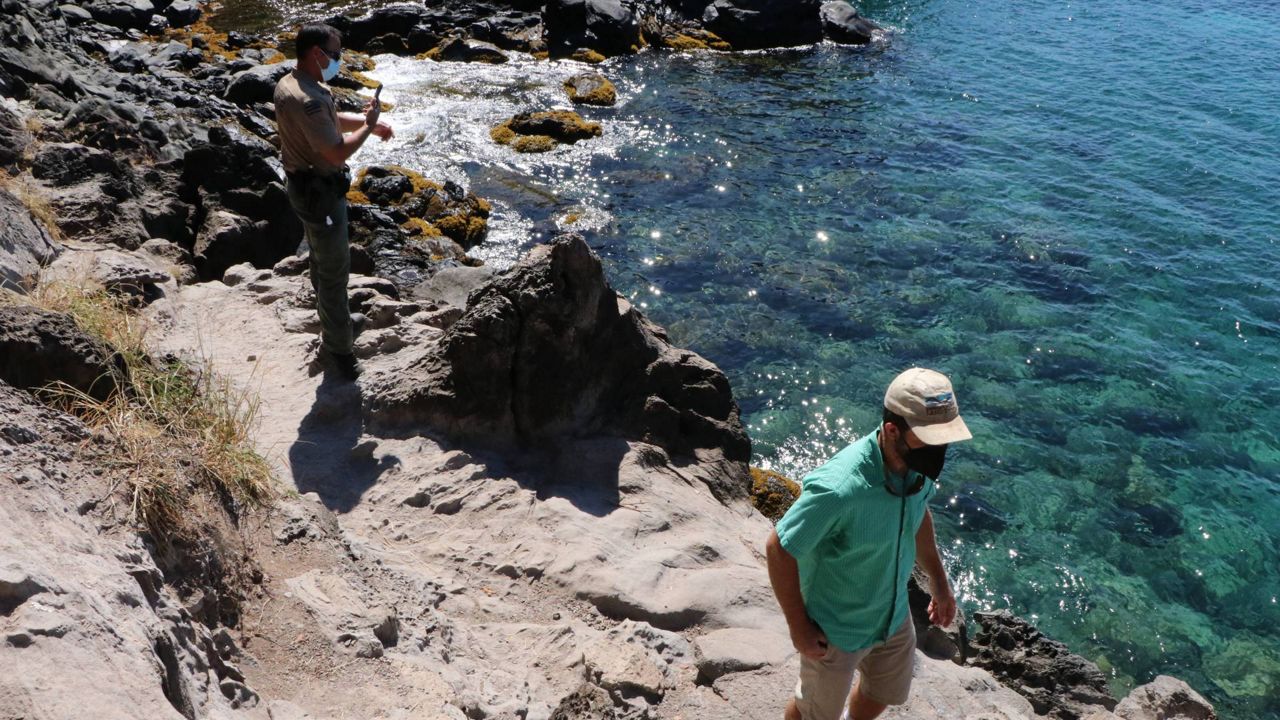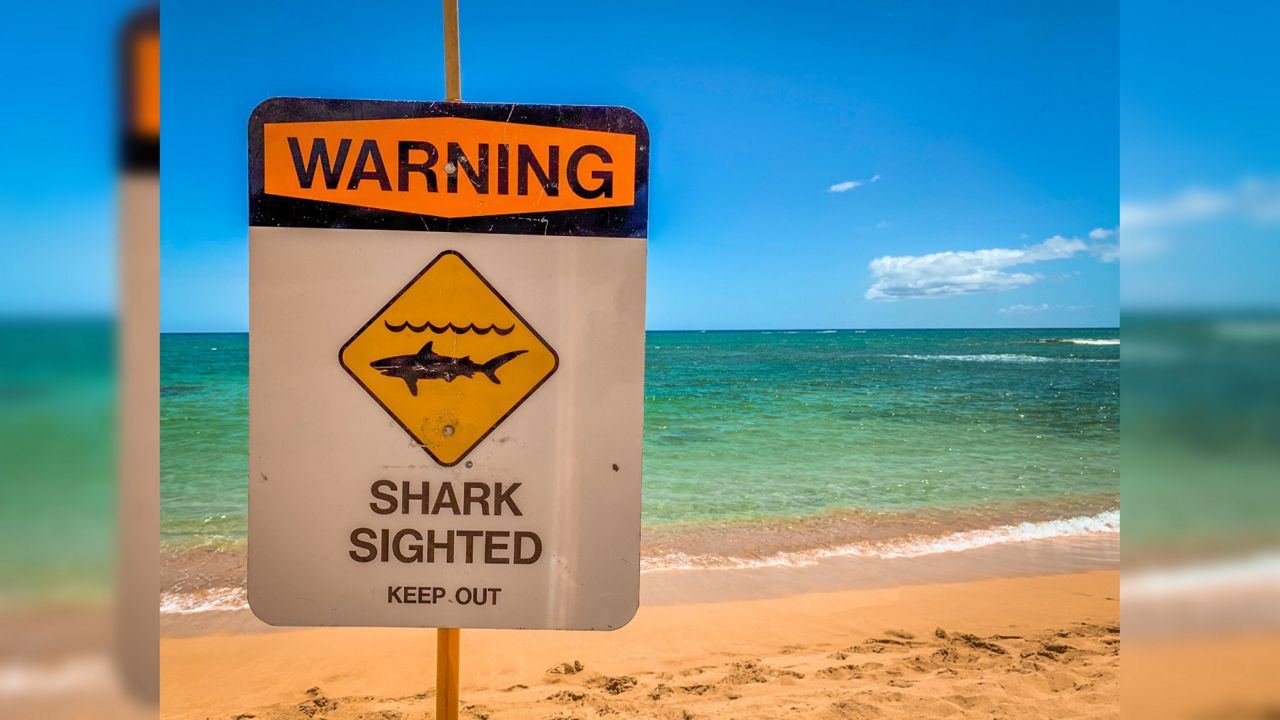KAPALUA, Hawaii — Following disputes between Maui residents and the owner of a nearby property owner, DLNR Division of Conservation and Resources Enforcement officers investigated the conservation easement at Hawea Point.
Hawea Point is a popular area for cliff diving. The owner of a home adjacent to the area, identified in local media outlets as Jonathan Yantis, installed a security camera, official-looking signs and stationed a security guard at the point.
Yantis has complained of loud noise, underage drinking and drug use happening when groups of people gather along the rocky coastline at Hawea Point. Conversely, ocean users have complained about the security guard, camera and signs, claiming it’s an effort to restrict access to the ocean.
DOCARE officials met on Friday with Shae Kamaka‘ala, director of Aina Protection and general counsel for Hawaii Land Trust and James Crowe, Aina stewardship manager for the organization. Hawaii Land Trust holds the conservation easement at Hawea Point and has asked Yantis to remove the security guard.
“This Conservation Easement, protecting public access and recreation in perpetuity, was created out of a settlement agreement with the original developers and concerned community groups. Hawaii Land Trust adopted the stewardship of this Conservation Easement in 2004, covering roughly two acres,” Kamaka‘ala said in a statement released to the press on Monday.
According to Crowe, “The trail is on private property, but access to the water is protected by the Conservation Easement. As you near the part of the trail where you can see the Cliff House, everything makai (ocean side) of the trail belongs to the state. The concrete platform where the homeowner’s security guard sits is private property, protected for public access and recreational use. The land makai of the platform is public land, but the land above that part of the trail is private property, not subject to the Conservation Easement.”
Kamaka‘ala adds that, while public access is protected, it is still subject to laws restricting recreational use, which prohibit loud music, drug or alcohol use.
“Shoreline access is a right derived by the Traditional & Customary use of the Indigenous peoples of Hawaii,” Kamaka‘ala said. “Hawaii Land trust understands that Hawea Point is an important ice box for ohana of this area and perhaps the resting grounds of iwi kupuna (ancestral remains). We ask that everyone who enjoys, lives and uses the area for access and recreation to also respect and acknowledge those who came before them.”
Hawea Point is one of many places on Maui and around the state where large groups of people tend to congregate. “We ask everyone at Hawea Point, whether they are property owners or recreational uses, to respect everyone’s right to enjoyment of their private property and use of the public lands there,” said DOCARE Chief Jason Redulla.








